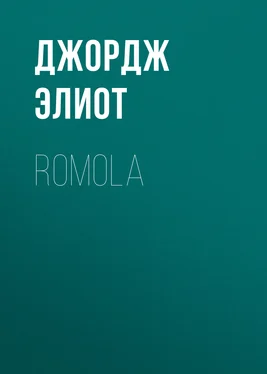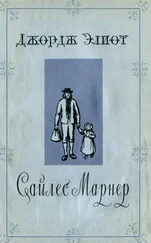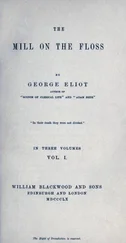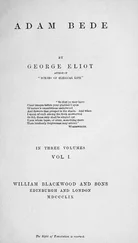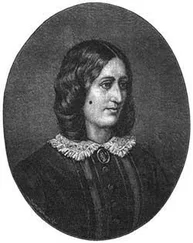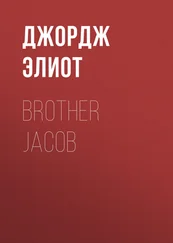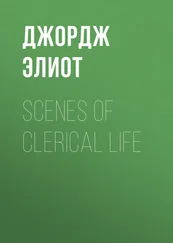Джордж Элиот - Romola
Здесь есть возможность читать онлайн «Джордж Элиот - Romola» — ознакомительный отрывок электронной книги совершенно бесплатно, а после прочтения отрывка купить полную версию. В некоторых случаях можно слушать аудио, скачать через торрент в формате fb2 и присутствует краткое содержание. Жанр: Альтернативная история, literature_19, foreign_antique, foreign_prose, Исторические приключения, на английском языке. Описание произведения, (предисловие) а так же отзывы посетителей доступны на портале библиотеки ЛибКат.
- Название:Romola
- Автор:
- Жанр:
- Год:неизвестен
- ISBN:нет данных
- Рейтинг книги:3 / 5. Голосов: 1
-
Избранное:Добавить в избранное
- Отзывы:
-
Ваша оценка:
- 60
- 1
- 2
- 3
- 4
- 5
Romola: краткое содержание, описание и аннотация
Предлагаем к чтению аннотацию, описание, краткое содержание или предисловие (зависит от того, что написал сам автор книги «Romola»). Если вы не нашли необходимую информацию о книге — напишите в комментариях, мы постараемся отыскать её.
Romola — читать онлайн ознакомительный отрывок
Ниже представлен текст книги, разбитый по страницам. Система сохранения места последней прочитанной страницы, позволяет с удобством читать онлайн бесплатно книгу «Romola», без необходимости каждый раз заново искать на чём Вы остановились. Поставьте закладку, и сможете в любой момент перейти на страницу, на которой закончили чтение.
Интервал:
Закладка:
George Eliot
Romola
Prologue
More than three centuries and a half ago, in the mid spring-time of 1492, we are sure that the angel of the dawn, as he travelled with broad slow wing from the Levant to the Pillars of Hercules, and from the summits of the Caucasus across all the snowy Alpine ridges to the dark nakedness of the Western isles, saw nearly the same outline of firm land and unstable sea—saw the same great mountain shadows on the same valleys as he has seen to-day—saw olive mounts, and pine forests, and the broad plains green with young corn or rain-freshened grass—saw the domes and spires of cities rising by the river-sides or mingled with the sedge-like masts on the many-curved sea-coast, in the same spots where they rise to-day. And as the faint light of his course pierced into the dwellings of men, it fell, as now, on the rosy warmth of nestling children; on the haggard waking of sorrow and sickness; on the hasty uprising of the hard-handed labourer; and on the late sleep of the night-student, who had been questioning the stars or the sages, or his own soul, for that hidden knowledge which would break through the barrier of man’s brief life, and show its dark path, that seemed to bend no whither, to be an arc in an immeasurable circle of light and glory. The great river-courses which have shaped the lives of men have hardly changed; and those other streams, the life-currents that ebb and flow in human hearts, pulsate to the same great needs, the same great loves and terrors. As our thought follows close in the slow wake of the dawn, we are impressed with the broad sameness of the human lot, which never alters in the main headings of its history—hunger and labour, seed-time and harvest, love and death.
Even if, instead of following the dim daybreak, our imagination pauses on a certain historical spot and awaits the fuller morning, we may see a world-famous city, which has hardly changed its outline since the days of Columbus, seeming to stand as an almost unviolated symbol, amidst the flux of human things, to remind us that we still resemble the men of the past more than we differ from them, as the great mechanical principles on which those domes and towers were raised must make a likeness in human building that will be broader and deeper than all possible change. And doubtless, if the spirit of a Florentine citizen, whose eyes were closed for the last time while Columbus was still waiting and arguing for the three poor vessels with which he was to set sail from the port of Palos, could return from the shades and pause where our thought is pausing, he would believe that there must still be fellowship and understanding for him among the inheritors of his birthplace.
Let us suppose that such a Shade has been permitted to revisit the glimpses of the golden morning, and is standing once more on the famous hill of San Miniato, which overlooks Florence from the south.
The Spirit is clothed in his habit as he lived: the folds of his well-lined black silk garment or lucco hang in grave unbroken lines from neck to ankle; his plain cloth cap, with its becchetto , or long hanging strip of drapery, to serve as a scarf in case of need, surmounts a penetrating face, not, perhaps, very handsome, but with a firm, well-cut mouth, kept distinctly human by a close-shaven lip and chin. It is a face charged with memories of a keen and various life passed below there on the banks of the gleaming river; and as he looks at the scene before him, the sense of familiarity is so much stronger than the perception of change, that he thinks it might be possible to descend once more amongst the streets, and take up that busy life where he left it. For it is not only the mountains and the westward-bending river that he recognises; not only the dark sides of Mount Morello opposite to him, and the long valley of the Arno that seems to stretch its grey low-tufted luxuriance to the far-off ridges of Carrara; and the steep height of Fiesole, with its crown of monastic walls and cypresses; and all the green and grey slopes sprinkled with villas which he can name as he looks at them. He sees other familiar objects much closer to his daily walks. For though he misses the seventy or more towers that once surmounted the walls, and encircled the city as with a regal diadem, his eyes will not dwell on that blank; they are drawn irresistibly to the unique tower springing, like a tall flower-stem drawn towards the sun, from the square turreted mass of the Old Palace in the very heart of the city—the tower that looks none the worse for the four centuries that have passed since he used to walk under it. The great dome, too, greatest in the world, which, in his early boyhood, had been only a daring thought in the mind of a small, quick-eyed man—there it raises its large curves still, eclipsing the hills. And the well-known bell-towers—Giotto’s, with its distant hint of rich colour, and the graceful-spired Badia, and the rest—he looked at them all from the shoulder of his nurse.
“Surely,” he thinks, “Florence can still ring her bells with the solemn hammer-sound that used to beat on the hearts of her citizens and strike out the fire there. And here, on the right, stands the long dark mass of Santa Croce, where we buried our famous dead, laying the laurel on their cold brows and fanning them with the breath of praise and of banners. But Santa Croce had no spire then: we Florentines were too full of great building projects to carry them all out in stone and marble; we had our frescoes and our shrines to pay for, not to speak of rapacious condottieri, bribed royalty, and purchased territories, and our façades and spires must needs wait. But what architect can the Frati Minori (the Franciscans) have employed to build that spire for them? If it had been built in my day, Filippo Brunelleschi or Michelozzo would have devised something of another fashion than that—something worthy to crown the church of Arnolfo.”
At this the Spirit, with a sigh, lets his eyes travel on to the city walls, and now he dwells on the change there with wonder at these modern times. Why have five out of the eleven convenient gates been closed? And why, above all, should the towers have been levelled that were once a glory and defence? Is the world become so peaceful, then, and do Florentines dwell in such harmony, that there are no longer conspiracies to bring ambitious exiles home again with armed bands at their back? These are difficult questions: it is easier and pleasanter to recognise the old than to account for the new. And there flows Arno, with its bridges just where they used to be—the Ponte Vecchio, least like other bridges in the world, laden with the same quaint shops where our Spirit remembers lingering a little on his way perhaps to look at the progress of that great palace which Messer Luca Pitti had set a-building with huge stones got from the Hill of Bogoli (now Boboli) close behind, or perhaps to transact a little business with the cloth-dressers in Oltrarno. The exorbitant line of the Pitti roof is hidden from San Miniato; but the yearning of the old Florentine is not to see Messer Luca’s too ambitious palace which he built unto himself; it is to be down among those narrow streets and busy humming Piazze where he inherited the eager life of his fathers. Is not the anxious voting with black and white beans still going on down there? Who are the Priori in these months, eating soberly—regulated official dinners in the Palazzo Vecchio, with removes of tripe and boiled partridges, seasoned by practical jokes against the ill-fated butt among those potent signors? Are not the significant banners still hung from the windows—still distributed with decent pomp under Orcagna’s Loggia every two months?
Life had its zest for the old Florentine when he, too, trod the marble steps and shared in those dignities. His politics had an area as wide as his trade, which stretched from Syria to Britain, but they had also the passionate intensity, and the detailed practical interest, which could belong only to a narrow scene of corporate action; only to the members of a community shut in close by the hills and by walls of six miles’ circuit, where men knew each other as they passed in the street, set their eyes every day on the memorials of their commonwealth, and were conscious of having not simply the right to vote, but the chance of being voted for. He loved his honours and his gains, the business of his counting-house, of his guild, of the public council-chamber; he loved his enmities too, and fingered the white bean which was to keep a hated name out of the
Читать дальшеИнтервал:
Закладка:
Похожие книги на «Romola»
Представляем Вашему вниманию похожие книги на «Romola» списком для выбора. Мы отобрали схожую по названию и смыслу литературу в надежде предоставить читателям больше вариантов отыскать новые, интересные, ещё непрочитанные произведения.
Обсуждение, отзывы о книге «Romola» и просто собственные мнения читателей. Оставьте ваши комментарии, напишите, что Вы думаете о произведении, его смысле или главных героях. Укажите что конкретно понравилось, а что нет, и почему Вы так считаете.
